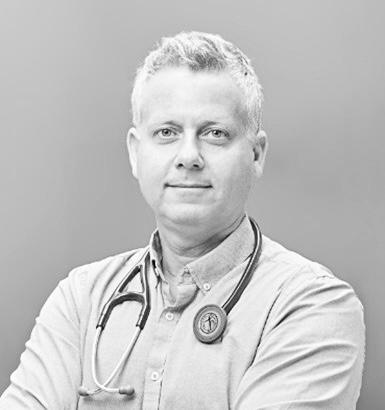
10 Signs and Symptoms of a Mild Stroke: Are You Suffering Without Realizing It?


You’re probably familiar with common stroke symptoms — difficulty speaking, seeing, walking, and numbness on one side of the body. These are all obvious signs, enabling you to quickly get the help you need.
However, it’s possible to have a stroke and not even know it or remember it happening. Silent cerebral infarction (SCI) and Transient ischemic attack (TIA) is a “mild stroke” that causes brain damage and can to a more severe stroke down the road, possibly within the next year.
Mild strokes (also called “silent strokes” or “mini strokes”) are much more common than other recognizable types of strokes. The Rotterdam Scan Study found that 25% of brain scans done on 1,077 elderly patients had signs of a stroke, with 80% of those patients not knowing they had suffered one.
In population-based studies, silent stroke symptoms (silent brain infarcts) on MRIs have shown the following prevalence:
- 8% to 31% for white, Black, and Japanese populations
- 10.7% to 84% for those aged 53–71 years
- An increased risk for men and younger Black populations
Canadian researchers have discovered that mild strokes are “common in seniors after they have elective, non-cardiac surgery” which leads to a doubled “risk of cognitive decline one year later.”
How a Mild Stroke Differs
Just as with other types of strokes, a mild stroke occurs when the blood supply is cut off to part of your brain. The difference is that the part of your brain affected by a mild stroke is too small to hamper the control of your vital brain functions, so symptoms may go unnoticed or be blamed on other health or mental conditions.
Most people won’t positively know that they’ve had a mild stroke without an MRI or CT scan picking up on affected small blood vessels, changes in white matter, or lesions.
Still, the signs and symptoms of a mild stroke shouldn’t be ignored.
A mild stroke does kill brain cells and tissue and should be caught in order to treat symptoms and prevent another stroke from taking place. It’s not uncommon to suffer several mild strokes before noticing a cumulative neurological effect, even vascular (post-stroke) dementia. In fact, up to one-third of those who suffer from a stroke develop dementia within six months.
The Cleveland Clinic Abu Dhabi urges residents to look for mini stroke warning signals.
Why? Because “while the global average age of a stroke victim is over 65, the average age in the UAE is younger due to the high prevalence of risk factors such as obesity, high blood pressure and diabetes. Half of all stroke patients in the country are under the age of 45.”
So, what are the signs and symptoms of a mild stroke? Here’s what might tip you off to the root cause of your symptoms.
The Most Common Signs and Symptoms of a Mild Stroke
Up to 50% of stroke survivors suffer from motor dysfunction or brain impairment. Here are 10 signs of a mini stroke you or a loved one may experience suddenly but mildly, and which may last a couple of hours, a few days, or long-term:
- A lapse in or loss of short-term memory: Do you have to ask someone to repeat instructions they just told you but still remember details from a conversation you had last month? Is there a day or activity you had recently that you simply don’t remember, even with prompts?
- A decreased ability to think or reason: Have you given up on a game you used to love playing, like Sudoku or crossword puzzles? Do you find yourself frustrated or arguing more because you don’t understand someone else’s reasons for wanting you to do something?
- Mood changes: Are you suddenly irritable, anxious, apathetic, or depressed? Have you found yourself crying or laughing for no obvious reason or at inappropriate times?
- Psychiatric disorders: Do you have hallucinations or delusions? Have you found yourself engaging in inappropriate motor behavior, like nibbling food at the dinner table or repeatedly banging your head?
- Trouble with balance: Are you experiencing dizziness or feeling like your head is spinning? Is it difficult to make quick adjustments to maintain balance? Do you find yourself stumbling or bumping into things? Does it feel like you’re standing upright when in fact, you’re leaning to one side?
- Movement or walking impairment: Are your toes now catching on the ground when you take steps? Do you tire easily just from walking to your neighbor’s house? Is walking and talking at the same time difficult for you?
- Limb clumsiness: Does it take concentration to control your hand motions? Is it tricky to type even though you’re normally very proficient? Do you have a shaky leg? Are you noticing a decrease in hand-eye coordination?
- Incontinence: Do you feel the urge to urinate more often than usual? Are you consciously or unconsciously leaking urine or stool during the day or while asleep at night? Is it difficult to empty your bladder completely?
- Headaches or migraines: Are you having more headaches or migraines than usual? Or are you getting long-term, persistent headaches? Have your headaches become severe enough to disrupt your daily activities?
- Vision issues: Does seeing things clearly take concentration? Are you less aware of your surroundings? Are you having double vision? Has your field of vision reduced?
It’s important to note that these symptoms of mild stroke may also be signs of other medical conditions, so it’s important to speak with your doctor about your concerns and treatment options.

Stop Suffering in Silence: Schedule a Consultation
The truth is, there is no such thing as a mild stroke, as their symptoms are real and can have long-lasting, significant effects on your body and life.
Don’t suffer in silence. If you or a family member are showing signs of a mild stroke, there is hope. A customized post-stroke recovery medical programme utilizing advanced HBOT techniques helps heal the brain and body, leading to a remarkable recovery and lowered risk of suffering a serious stroke in the future.
Schedule a complimentary consultation with a doctor at The Brain & Performance Centre, or take a tour of our specialty clinic and get your advanced brain imaging scans to check for symptoms of a silent stroke.
The Brain & Performance Centre provides you with a unique opportunity to invest in your health while you age
